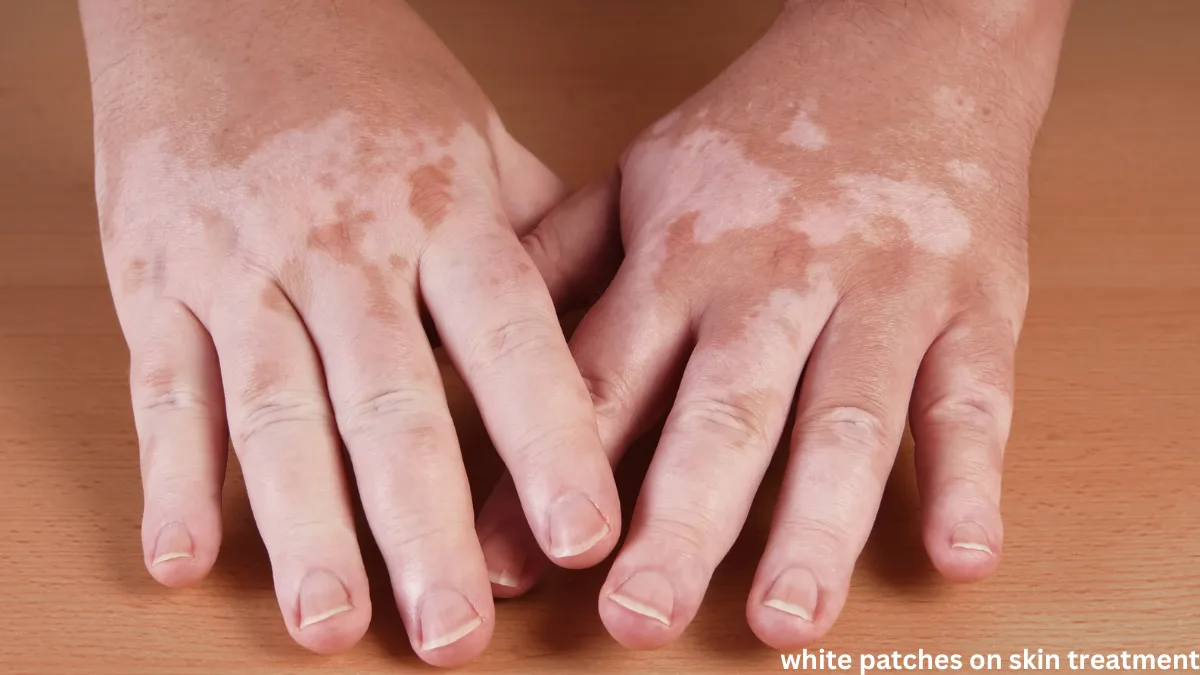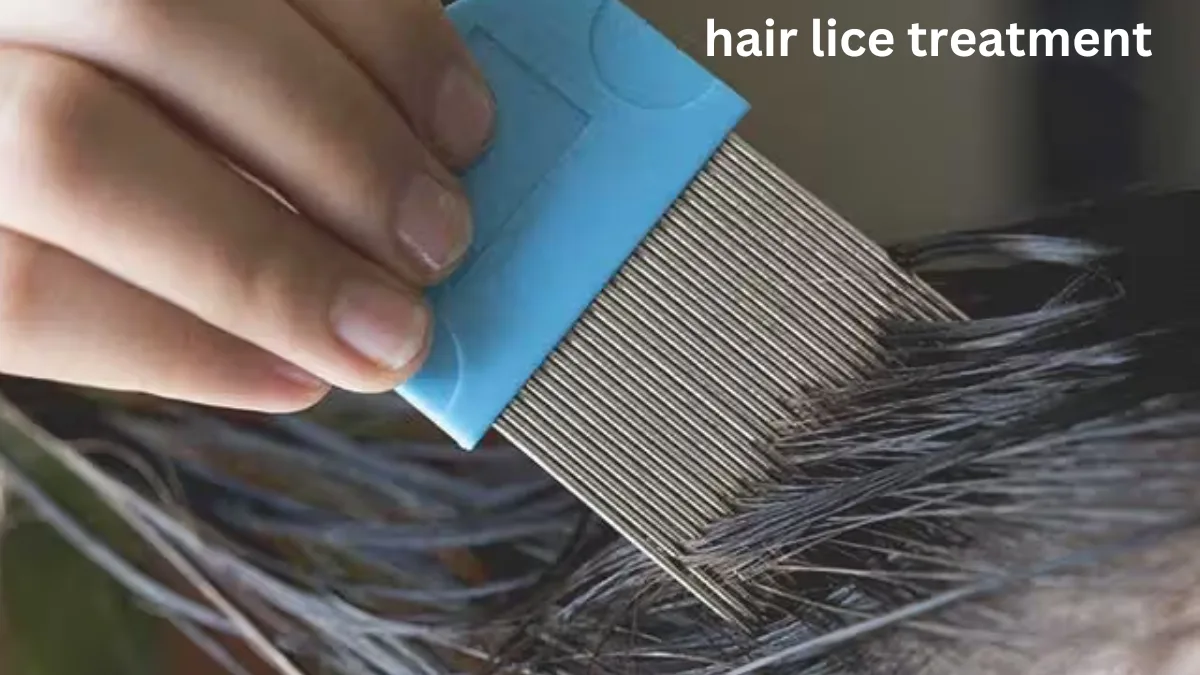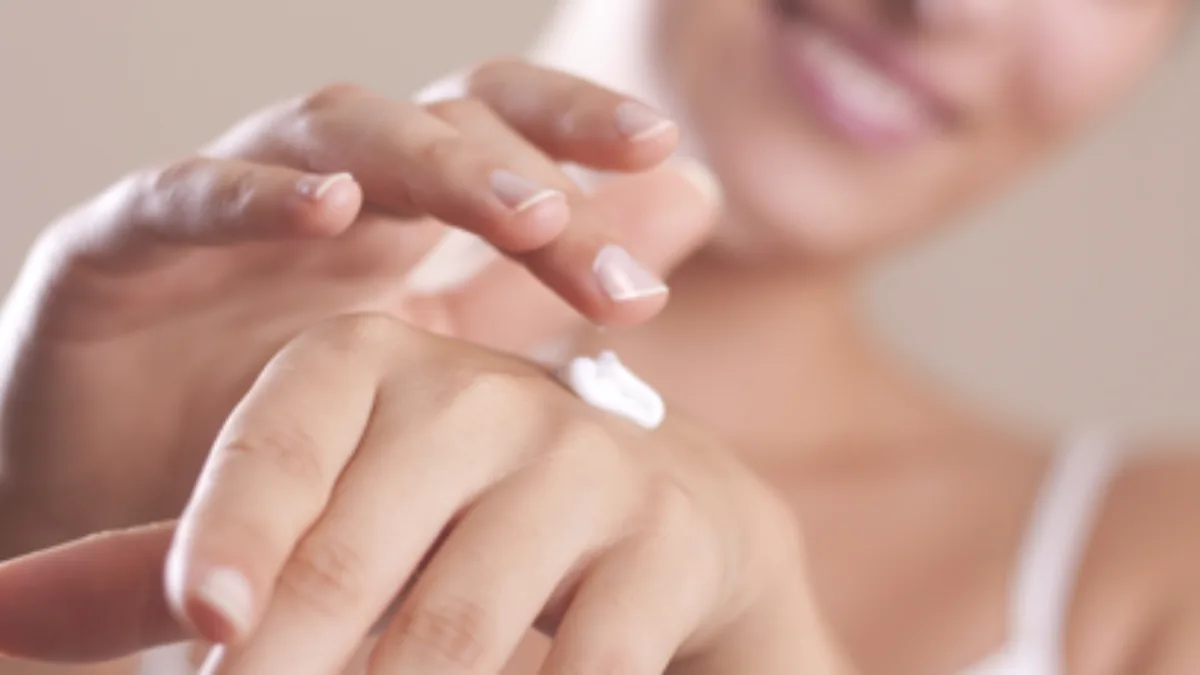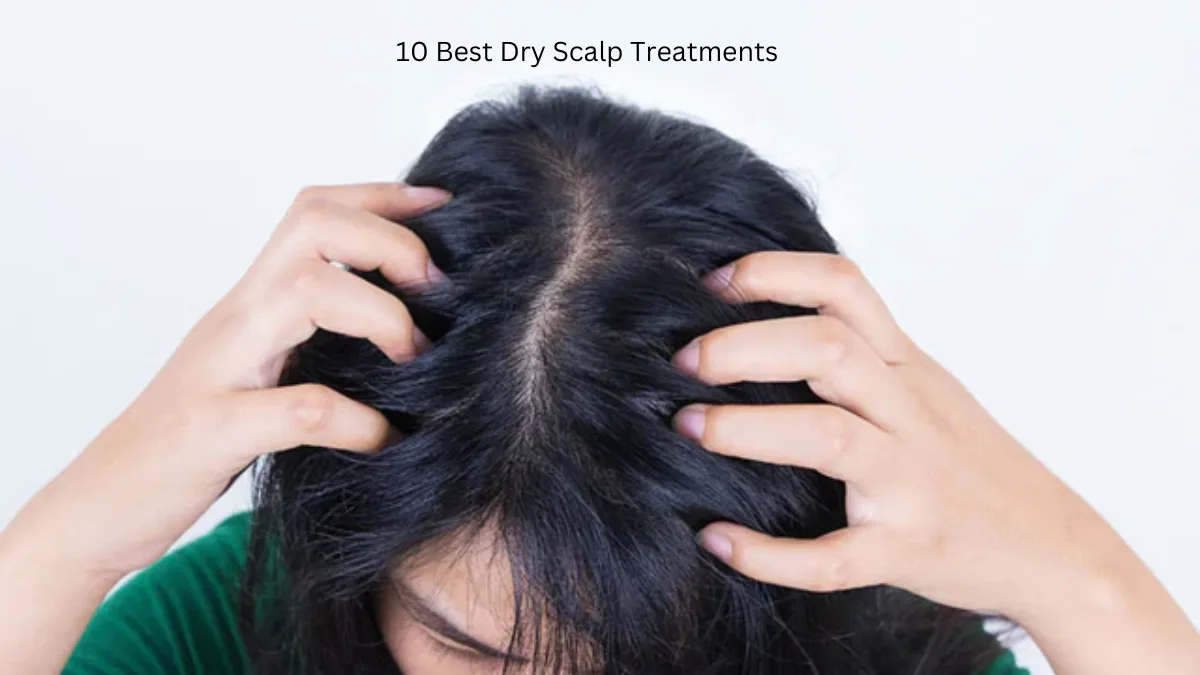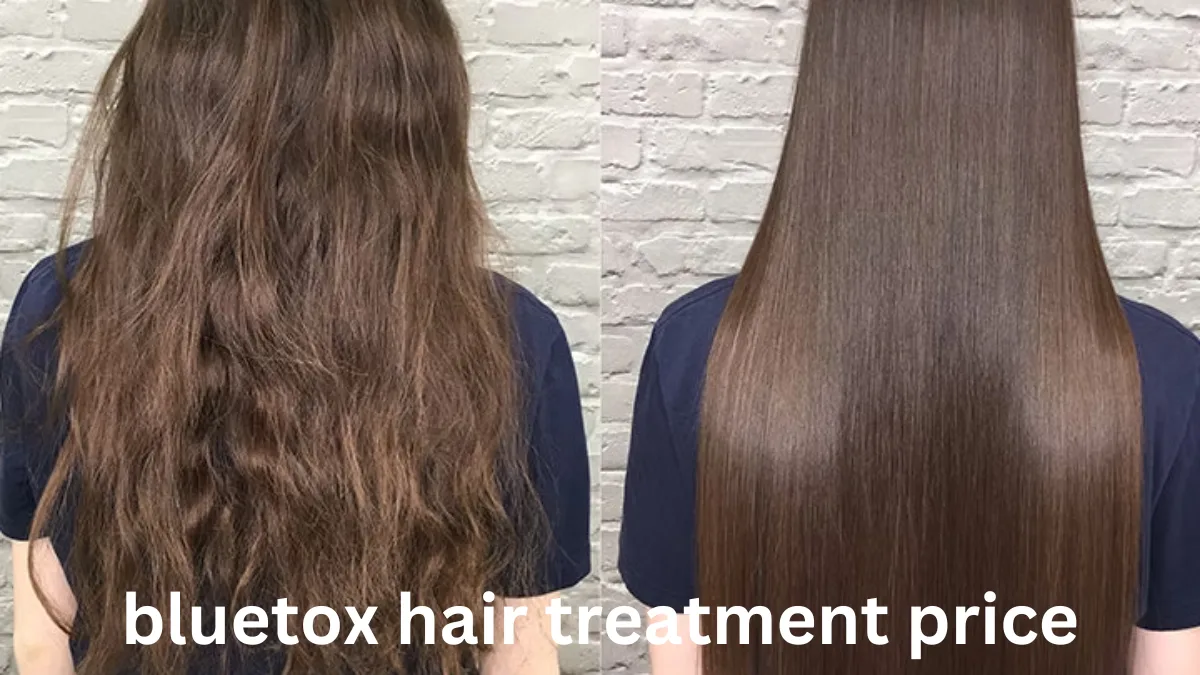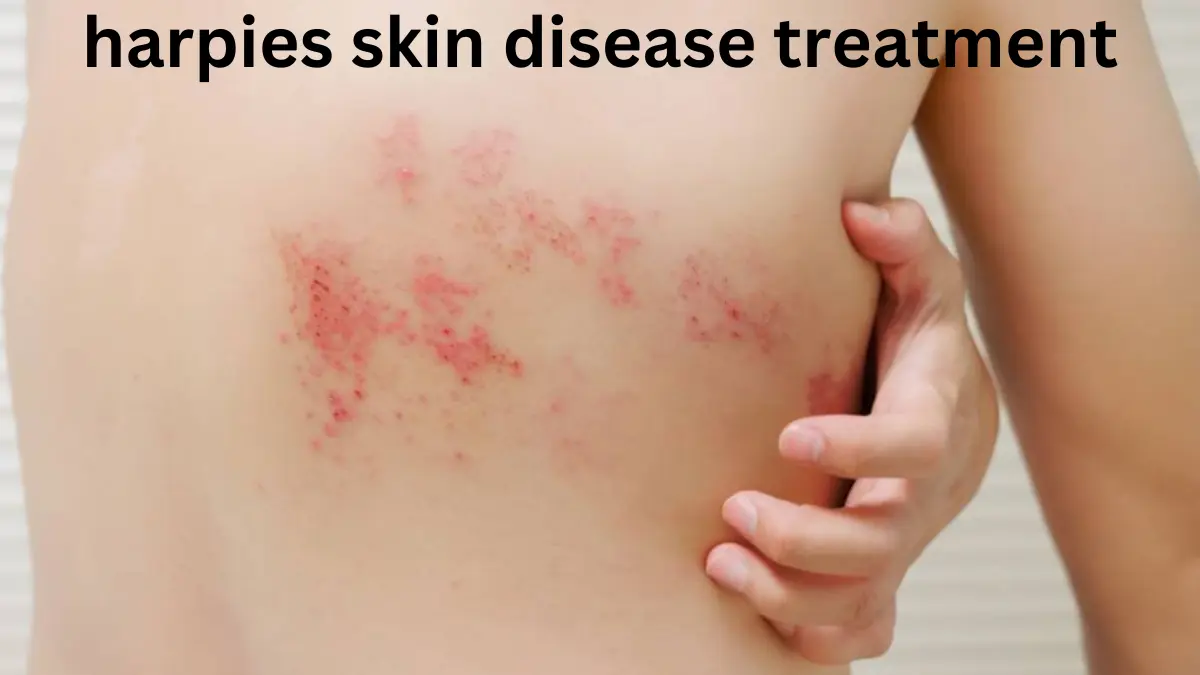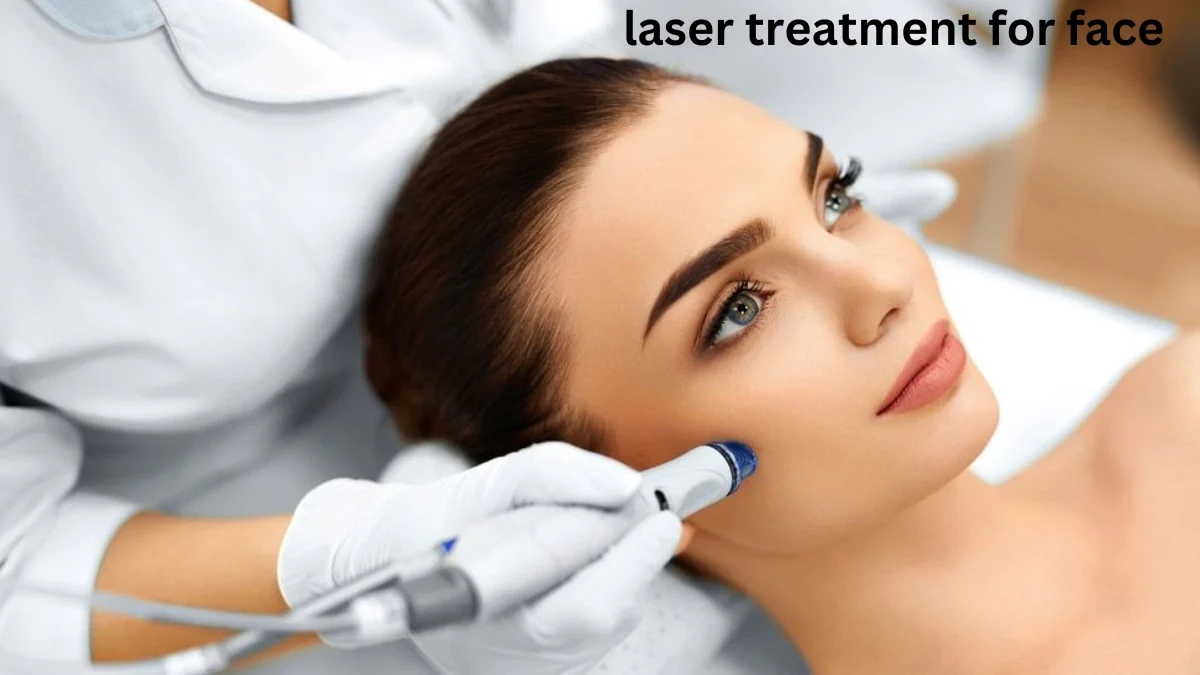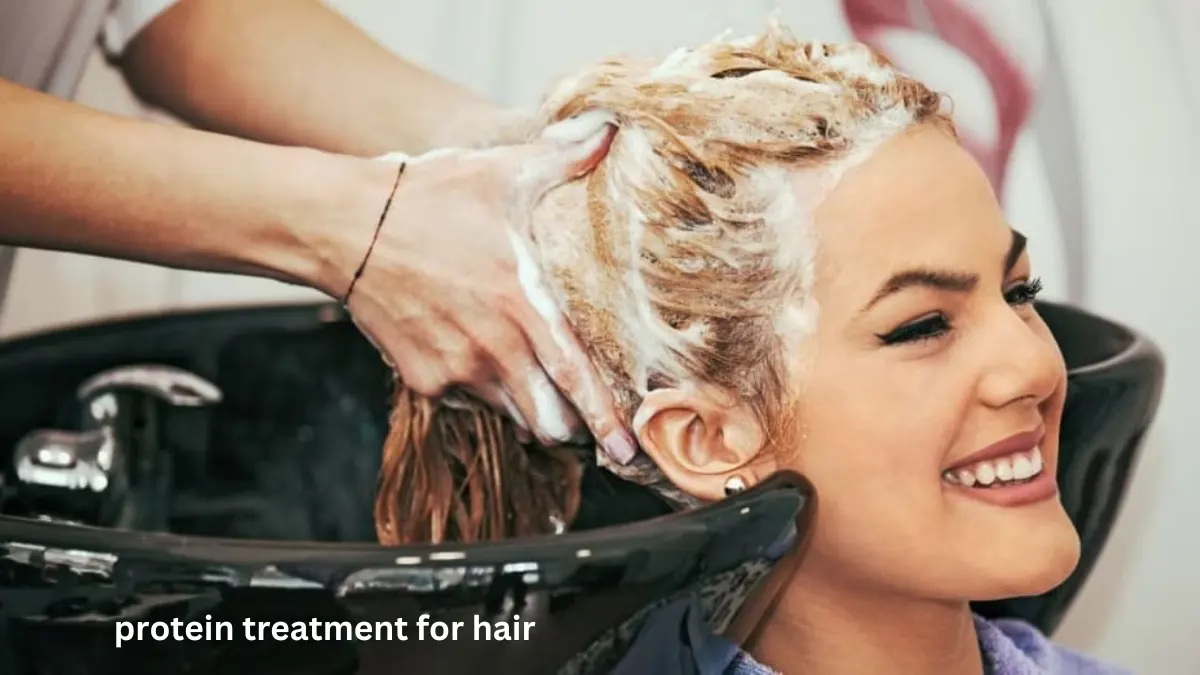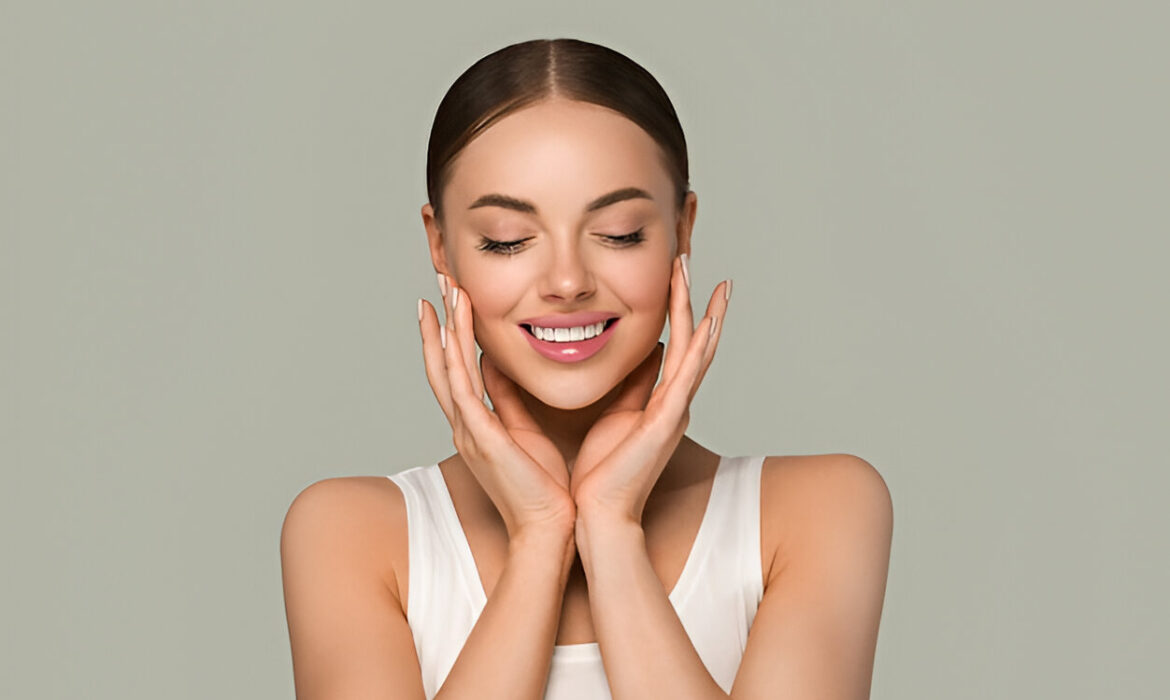Reveal your natural glow with advanced skin treatments for glowing skin by the best dermatologist in Chennai. Feel confident in your skin.
White Patches on Skin Treatment: Causes, Remedies, and Solutions
White Patches on Skin Treatment: White patches on the skin can be a cause of concern for many individuals. These patches may appear due to various medical conditions and can impact self-confidence. While some cases are temporary, others may require long-term treatment. Early diagnosis and proper treatment are crucial for managing and restoring skin pigmentation. In this article, we will discuss the causes, medical treatments, home remedies, and preventive measures for white patches on the skin.
Book Your Consultation Today
Visit Dr. Hanan Dermatology Specialty Clinic in Padur, OMR, Chennai. Schedule your consultation today and start your journey to fuller, healthier hair.
For more information and to book your appointment, visit our clinic or call us at the clinic’s contact details.
Causes of White Patches on Skin
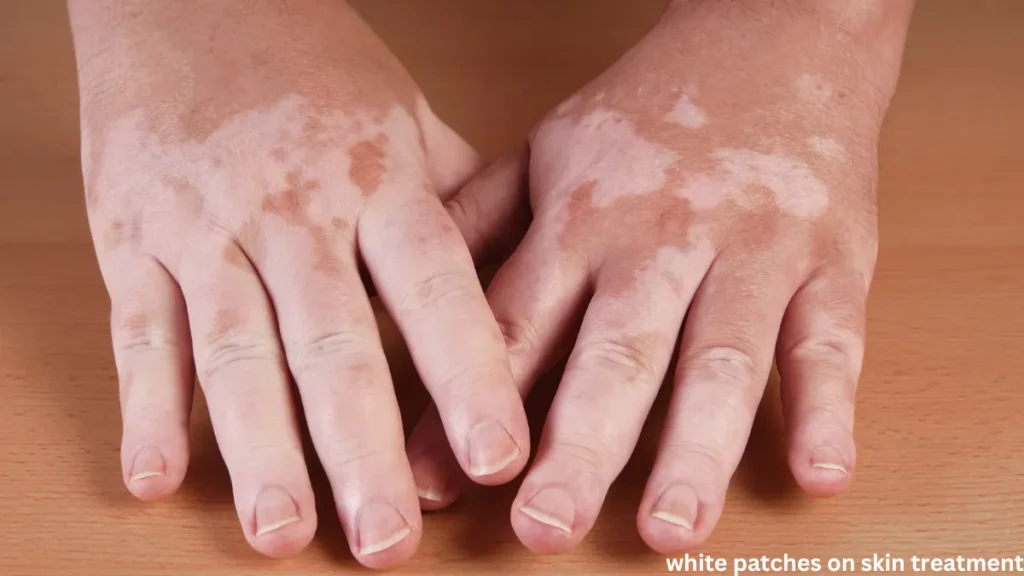
White patches can result from different conditions, including:
1. Vitiligo
Vitiligo is an autoimmune condition where the body’s immune system attacks melanocytes, the cells responsible for producing skin pigment. This leads to the loss of skin color in patches.
2. Pityriasis Alba
A common skin condition in children, pityriasis alba causes dry, scaly white patches on the face and arms. It is usually associated with eczema and resolves over time.
3. Fungal Infections (Tinea Versicolor)
A yeast infection on the skin can cause small, discolored patches that may appear white, pink, or brown. These patches often become more noticeable in humid climates.
4. Nutritional Deficiencies
A lack of essential nutrients, such as Vitamin B12, Vitamin D, copper, and iron, can lead to hypopigmentation.
5. Skin Trauma or Burns
Post-inflammatory hypopigmentation can occur after skin injuries, burns, or chemical exposure, causing temporary or permanent white patches.
6. Other Medical Conditions
Certain conditions like psoriasis, eczema, and leprosy can also cause white patches as a symptom.
Diagnosis and When to See a Doctor
If you notice persistent white patches on your skin, consult a dermatologist. Diagnosis may involve:
- Physical Examination – Observing the patches and skin condition.
- Wood’s Lamp Test – Using UV light to examine pigmentation changes.
- Skin Biopsy – A small skin sample may be taken for analysis.
- Blood Tests – Checking for autoimmune disorders or nutritional deficiencies.
Medical Treatments for White Patches
1. Topical Treatments
- Corticosteroids – These creams can help restore skin color, especially if applied early.
- Topical Calcineurin Inhibitors (Tacrolimus, Pimecrolimus) – Used for small patches to stimulate pigment production.
- Janus Kinase (JAK) Inhibitors – Help restore pigmentation by reducing inflammation.
2. Light Therapy
- Photochemotherapy (PUVA) – Involves applying medication to the skin before exposure to UVA light.
- Narrow-Band UVB Therapy – Direct UVB exposure can stimulate melanocytes and restore skin color.
3. Depigmentation Therapy
For widespread vitiligo, depigmenting the remaining skin to achieve an even tone may be an option.
4. Medical-Grade Skin Peels
Chemical peels can exfoliate the top layers of skin and stimulate new pigment production.
Cosmetic and Camouflage Solutions
- Skin Camouflage Creams – Specially formulated concealers can temporarily cover white patches.
- Tattooing (Micropigmentation) – Permanent cosmetic tattooing can help blend white patches with surrounding skin.
Home Remedies and Lifestyle Management
1. Natural Remedies
- Coconut Oil – Moisturizes and soothes the skin, promoting healing.
- Aloe Vera Gel – Known for its anti-inflammatory and healing properties.
- Honey – Helps hydrate the skin and has antimicrobial benefits.
2. Dietary Changes
Consuming foods rich in vitamins and minerals, such as leafy greens, nuts, and dairy, can support skin health.
3. Sun Protection
Using sunscreen with SPF 30 or higher helps protect depigmented skin from sun damage and prevents further discoloration.
Preventive Measures
- Maintain good skin hygiene to prevent infections.
- Avoid harsh chemicals and skin irritants.
- Strengthen immunity through a balanced diet and hydration.
Conclusion
White Patches on Skin Treatment and White patches on the skin can be caused by various conditions, from autoimmune disorders to fungal infections. While medical treatments, topical applications, and light therapy can restore pigmentation, natural remedies and preventive care also play a role in managing these patches. If you notice persistent white patches, consulting a dermatologist for a proper diagnosis and treatment plan is essential. With the right approach, skin pigmentation can often be restored, helping you regain confidence in your skin’s appearance.
Hair Lice Treatment: Effective Remedies & Prevention Tips
Hair Lice Treatment: Hair lice are tiny, wingless parasites that infest the scalp and feed on human blood. They spread easily through direct head-to-head contact, making them common among children and families. Contrary to popular belief, lice infestations are not caused by poor hygiene. If you or your child is experiencing persistent itching and discomfort, it’s essential to take immediate action with the right treatment methods.
Book Your Consultation Today
Visit Dr. Hanan Dermatology Specialty Clinic in Padur, OMR, Chennai. Schedule your consultation today and start your journey to fuller, healthier hair.
For more information and to book your appointment, visit our clinic or call us at the clinic’s contact details.
Signs and Symptoms of Hair Lice
- Persistent Itching: The most common symptom due to an allergic reaction to lice bites.
- Visible Nits (Eggs): Tiny white or yellowish eggs attached to the base of hair strands.
- Lice Crawling on the Scalp: Adult lice are small (about the size of a sesame seed) and move quickly.
- Red Bumps or Sores: Scratching can lead to irritation and infection.
Causes and Risk Factors
- Direct Head-to-Head Contact: Common among children at school or daycare.
- Sharing Personal Items: Hats, combs, hairbrushes, and pillows can harbor lice.
- Lack of Preventive Measures: Regular hair checks and proper hygiene help reduce infestation risks.
Effective Hair Lice Treatments
1. Over-the-Counter (OTC) Treatments
- Medicated Shampoos: Products containing permethrin or pyrethrin are effective at killing lice.
- Application Tips: Follow instructions carefully, leaving the shampoo on for the recommended time before rinsing.
- Repeat Treatment: A second application is often necessary after 7–10 days to kill newly hatched lice.
2. Prescription Treatments
- Stronger Medications: Spinosad, ivermectin, and malathion are prescribed for resistant lice.
- Doctor Consultation: If OTC treatments fail, consult a healthcare provider for a more effective solution.
3. Natural Remedies for Lice Removal
- Tea Tree Oil & Neem Oil: Have natural insecticidal properties.
- Coconut Oil & Olive Oil: Smother lice and make combing easier.
- Vinegar Rinse: Helps loosen nits from hair strands.
- Application Method: Apply the chosen remedy to dry hair, leave for several hours, then comb through with a fine-tooth lice comb.
4. Combing & Manual Removal
- Lice Comb: A fine-toothed metal comb helps remove lice and nits effectively.
- Wet Combing: Use conditioner to ease combing and repeat every few days.
- Lighting & Magnification: Bright light and a magnifying glass can help spot lice.
Preventing Hair Lice Infestation
- Avoid Head-to-Head Contact: Educate children about the risks of sharing hats and brushes.
- Regular Hair Checks: Especially in school-going children.
- Clean Personal Belongings: Wash bedding, hats, and clothing in hot water.
- Use Preventive Sprays: Essential oil-based sprays may deter lice.
When to See a Doctor
- If lice persist after multiple treatments.
- If scratching leads to scalp infections.
- If OTC solutions cause skin irritation or allergic reactions.
FAQs on Hair Lice Treatment
1. What are hair lice?
Hair lice are tiny, wingless parasites that live on the scalp and feed on human blood. They are highly contagious and can spread through direct head-to-head contact.
2. What are the common symptoms of hair lice?
Common symptoms include intense itching, a tickling sensation on the scalp, visible lice or nits (eggs) on hair strands, and red bumps on the scalp, neck, or shoulders.
3. How do lice spread?
Lice spread primarily through direct head-to-head contact but can also transfer via shared personal items such as combs, hats, pillows, and towels.
4. Can lice jump or fly?
No, lice cannot jump or fly. They move by crawling from one head to another.
5. What are the best treatments for hair lice?
Effective treatments include:
- Over-the-counter (OTC) lice shampoos containing permethrin or pyrethrin.
- Prescription treatments such as ivermectin or malathion for severe infestations.
- Home remedies like wet combing, essential oils, or vinegar rinses.
6. How do I remove nits (lice eggs) from my hair?
Use a fine-toothed lice comb on damp hair after applying a conditioner. Repeat the process daily for at least a week.
7. Can hair lice survive on furniture or bedding?
Lice can live off the scalp for up to 48 hours. Washing bedding, hats, and clothes in hot water and vacuuming furniture can help prevent reinfestation.
8. How long does it take to get rid of lice?
It typically takes 1–2 weeks with proper treatment and regular nit combing.
9. Can lice infestations happen to clean hair?
Yes, lice do not discriminate between clean or dirty hair. They only need human blood to survive.
10. Do I need to shave my head to remove lice?
No, shaving is unnecessary. Proper treatment and consistent lice combing are effective in removing lice.
11. Are lice shampoos safe for children?
Most OTC lice treatments are safe for children, but it’s best to consult a doctor before use, especially for kids under 2 years old.
12. Can lice cause serious health issues?
Lice are annoying but do not carry diseases. However, excessive scratching can cause scalp infections.
13. How can I prevent lice infestations?
Avoid sharing personal items, tie long hair in braids or ponytails, and perform regular lice checks, especially for school-going children.
14. Is it possible to get lice from pets?
No, human lice only live on human scalps and do not infest pets.
15. When should I see a doctor for lice treatment?
If OTC treatments fail, if the infestation persists, or if there are signs of an allergic reaction or skin infection, consult a doctor for stronger treatment options.
Dry Skin Treatment: Best Remedies and Skincare Tips
Dry skin is a common issue that affects people of all ages. It can cause irritation, itching, and flaking, making your skin look dull and rough. Various factors, including environmental conditions, skincare habits, and medical conditions, contribute to dry skin. Proper treatment can restore hydration and keep your skin healthy and glowing.
Book Your Consultation Today
Visit Dr. Hanan Dermatology Specialty Clinic in Padur, OMR, Chennai. Schedule your consultation today and start your journey to fuller, healthier hair.
For more information and to book your appointment, visit our clinic or call us at the clinic’s contact details.
Causes of Dry Skin
Understanding the causes of dry skin can help prevent and treat the condition effectively. Some common causes include:
- Environmental Factors: Cold weather, low humidity, and excessive sun exposure strip moisture from the skin.
- Overwashing: Frequent washing, especially with hot water, can damage the skin’s natural barrier.
- Harsh Skincare Products: Soaps and cleansers with alcohol, sulfates, and fragrances can dry out the skin.
- Medical Conditions: Eczema, psoriasis, and diabetes can contribute to excessive dryness.
- Dehydration: Not drinking enough water can lead to dry, flaky skin.
Best Moisturizing Techniques
Keeping your skin moisturized is key to preventing dryness. Follow these techniques:
- Choose the Right Moisturizer: Look for ingredients like hyaluronic acid, glycerin, ceramides, and petroleum jelly.
- Apply Moisturizer Correctly: Use it right after bathing when your skin is still damp to lock in moisture.
- Use Oil-Based Moisturizers: These are more effective for extremely dry skin compared to water-based lotions.
Daily Skincare Routine for Dry Skin
A good skincare routine helps maintain hydration levels and keeps dryness at bay:
- Use a Gentle Cleanser: Choose a mild, fragrance-free cleanser that won’t strip your skin’s natural oils.
- Apply a Hydrating Serum: Serums with hyaluronic acid and vitamin E help retain moisture.
- Follow with a Moisturizer: A rich, creamy moisturizer should be applied twice a day.
- Nighttime Skincare: Use a thicker moisturizer or overnight mask for intense hydration.
Home Remedies for Dry Skin
Natural remedies can effectively treat dry skin without harsh chemicals:
- Coconut Oil: A great natural moisturizer that soothes and nourishes dry skin.
- Aloe Vera Gel: Reduces inflammation and adds moisture to the skin.
- Honey and Yogurt Mask: Honey is a natural humectant that retains moisture, while yogurt provides gentle exfoliation.
Lifestyle Changes to Prevent Dry Skin
Simple lifestyle changes can help prevent dryness:
- Stay Hydrated: Drink plenty of water daily.
- Use a Humidifier: Adds moisture to indoor air and prevents skin from drying out.
- Avoid Long, Hot Showers: Use lukewarm water instead.
- Wear Protective Clothing: Cover exposed skin in cold weather to prevent moisture loss.
Medical Treatments for Severe Dry Skin
If home remedies and skincare routines don’t work, medical treatments may be necessary:
- Consult a Dermatologist: Seek professional advice if dry skin persists.
- Prescription Creams: Dermatologists may prescribe medicated creams with hydrocortisone or urea.
- Treatment for Underlying Conditions: Managing eczema, psoriasis, or diabetes can help alleviate dryness.
FAQs on Dry Skin Treatment
Q: How often should I apply moisturizer?
A: At least twice a day, or more frequently if needed.
Q: Can dry skin lead to wrinkles?
A: Yes, prolonged dryness can contribute to premature aging and fine lines.
Q: What ingredients should I avoid in skincare products?
A: Avoid alcohol, sulfates, and artificial fragrances, as they can further dry out the skin.
10 Best Dry Scalp Treatments: Causes, Powerful Remedies & Prevention Tips
10 Best Dry Scalp Treatments: A dry scalp can be uncomfortable, causing itchiness, flaking, and irritation. Many people mistake dry scalp for dandruff, but the two are different conditions requiring different treatments. Dry scalp occurs when the skin lacks moisture, leading to dryness and peeling. Understanding the causes and effective treatments can help restore scalp health and prevent further discomfort.
Book Your Consultation Today
Visit Dr. Hanan Dermatology Specialty Clinic in Padur, OMR, Chennai. Schedule your consultation today and start your journey to fuller, healthier hair.
For more information and to book your appointment, visit our clinic or call us at the clinic’s contact details.
Causes of Dry Scalp
Several factors contribute to a dry scalp, including environmental, lifestyle, and medical conditions. Some of the most common causes include:
1. Lack of Moisture
A dehydrated scalp is a primary cause of dryness. Without enough natural oils, the scalp becomes flaky and irritated.
2. Harsh Hair Care Products
Shampoos and conditioners containing sulfates, alcohol, or artificial fragrances can strip the scalp of essential oils, leading to dryness.
3. Weather Conditions
Cold, dry air in winter or excessive heat exposure in summer can rob the scalp of moisture, making it prone to flaking.
4. Aging & Hormonal Changes
As we age, oil production in the scalp decreases, leading to drier skin. Hormonal imbalances can also contribute to scalp dryness.
5. Skin Conditions
Certain dermatological conditions like psoriasis, seborrheic dermatitis, and eczema can cause persistent scalp dryness and irritation.
6. Poor Diet & Hydration
A lack of essential nutrients, such as omega-3 fatty acids, zinc, and vitamins A & E, can affect scalp health. Insufficient water intake also contributes to dryness.
Dry Scalp vs. Dandruff: Key Differences
Many people confuse dry scalp with dandruff, but they are different conditions:
| Feature | Dry Scalp | Dandruff |
|---|---|---|
| Cause | Lack of moisture | Excess oil production |
| Flakes | Small, white, and dry flakes | Larger, yellowish, oily flakes |
| Scalp Condition | Dry and tight | Oily and red |
| Treatment | Hydration and moisture-based care | Anti-fungal and oil-control treatments |
Understanding these differences can help you choose the right treatment for your condition.
Effective Treatments for Dry Scalp
The right treatment depends on the severity of your condition. Here are some of the best ways to treat dry scalp:
1. Use a Moisturizing Shampoo & Conditioner
Look for shampoos containing coconut oil, aloe vera, glycerin, shea butter, or argan oil. Avoid sulfates and harsh chemicals that strip the scalp of moisture.
2. Apply Scalp Oils & Serums
Oiling the scalp helps restore moisture and prevent dryness. Some of the best oils for dry scalp include:
- Jojoba Oil: Mimics the scalp’s natural sebum
- Tea Tree Oil: Soothes irritation and has antibacterial properties
- Argan Oil: Deeply hydrates and nourishes the scalp
3. Try Natural Home Remedies
For a chemical-free treatment, try these DIY remedies:
- Coconut Oil Massage: Warm coconut oil and gently massage it into your scalp before washing.
- Apple Cider Vinegar Rinse: Mix equal parts apple cider vinegar and water to balance scalp pH.
- Aloe Vera Gel: Apply fresh aloe vera to soothe and hydrate the scalp.
- Honey & Yogurt Mask: Mix honey with yogurt and apply it as a scalp mask for deep nourishment.
4. Medical Treatments for Severe Cases
If home remedies and over-the-counter treatments don’t work, consult a dermatologist. Prescription treatments may include:
- Medicated Shampoos: Containing ketoconazole, selenium sulfide, or zinc pyrithione
- Topical Corticosteroids: To reduce inflammation and itching
- Vitamin D-Based Medications: Such as calcipotriene to control skin cell production
Best Hair Care Routine for Dry Scalp
Follow these hair care tips to keep your scalp healthy and hydrated:
- Use Sulfate-Free Shampoo: Wash your hair with a gentle, moisturizing shampoo.
- Wash Hair Less Frequently: Overwashing can strip natural oils, so wash only 2-3 times a week.
- Avoid Heat Styling: Reduce the use of hair dryers, straighteners, and curling irons.
- Stay Hydrated: Drink plenty of water and eat a nutrient-rich diet.
- Avoid Harsh Chemical Treatments: Limit bleaching, coloring, and perming treatments.
Prevention Tips for Dry Scalp Treatment
Preventing dry scalp is easier than treating it. Here are some useful prevention tips:
- Moisturize Your Scalp Regularly: Apply a lightweight oil or leave-in conditioner.
- Use a Humidifier: Especially during winter to maintain moisture levels in the air.
- Protect Your Scalp from the Sun: Wear a hat or use SPF hair sprays.
- Manage Stress Levels: High stress can trigger scalp conditions, so practice relaxation techniques.
- Quit Smoking: Smoking reduces blood flow to the scalp, making it drier and less healthy.
When to See a Doctor
If your dry scalp persists despite home treatments, consult a dermatologist, especially if you experience:
- Severe itching or irritation
- Redness, swelling, or tenderness
- Thick, scaly patches
- Hair loss along with dryness
A doctor can diagnose underlying conditions and provide targeted treatments.
Dry Scalp Treatment at FAQs
1. What is the best treatment for a dry scalp?
The best treatment depends on the cause. Moisturizing shampoos, natural oils like coconut or jojoba oil, and hydrating hair masks can help. If the condition persists, consult a dermatologist for medicated treatments.
2. How can I permanently get rid of a dry scalp?
Maintaining a healthy scalp care routine is key. Use sulfate-free shampoos, keep your scalp moisturized, drink plenty of water, and protect your hair from harsh weather. If an underlying condition is causing dryness, medical treatment may be necessary.
3. Can dry scalp cause hair loss?
Yes, a severely dry scalp can lead to itching, inflammation, and flaking, which may weaken hair follicles and cause temporary hair loss. Treating scalp dryness early can help prevent this issue.
4. How often should I oil my dry scalp?
You can oil your scalp 1-2 times a week with lightweight oils like argan or jojoba oil. Avoid heavy oils that may clog pores. Always wash off excess oil to prevent buildup.
5. Is dandruff the same as dry scalp?
No, dandruff is caused by excess oil, while a dry scalp is caused by lack of moisture. Dandruff flakes are larger and oily, while dry scalp flakes are smaller and dry.
6. What foods help with a dry scalp?
Eating foods rich in omega-3 fatty acids, vitamin E, zinc, and biotin can improve scalp health. Include nuts, fish, avocados, and leafy greens in your diet.
7. Does drinking water help with a dry scalp?
Yes, staying hydrated helps maintain overall skin and scalp moisture. Aim for at least 8 glasses of water per day.
8. Can stress cause a dry scalp?
Yes, high-stress levels can trigger scalp issues, including dryness and irritation. Managing stress through exercise, meditation, or relaxation techniques can help.
9. Are there any home remedies for dry scalp?
Yes, natural remedies like coconut oil, aloe vera, apple cider vinegar, and honey masks can help restore moisture and soothe irritation.
10. When should I see a doctor for my dry scalp?
If you experience severe itching, redness, swelling, persistent flaking, or hair loss, consult a dermatologist to check for underlying conditions like psoriasis or fungal infections.
Bluetox Hair Treatment Price: Cost, Benefits & Best Deals
Bluetox hair treatment is becoming a popular choice for those looking to restore damaged hair, reduce frizz, and enhance shine. This deep-conditioning treatment infuses essential nutrients, proteins, and antioxidants into the hair, improving its overall health and appearance. However, many people wonder about the Bluetox hair treatment price and whether it is worth the investment.
Book Your Consultation Today
Visit Dr. Hanan Dermatology Specialty Clinic in Padur, OMR, Chennai. Schedule your consultation today and start your journey to fuller, healthier hair.
For more information and to book your appointment, visit our clinic or call us at the clinic’s contact details.
What is Bluetox Hair Treatment?
Bluetox is an advanced hair treatment designed to repair damaged hair, restore hydration, and protect against environmental stressors. It works similarly to a keratin or botox treatment but focuses more on nourishing the hair rather than restructuring its bonds.
Key Benefits:
- Deeply nourishes and hydrates hair
- Reduces frizz and enhances shine
- Strengthens hair fibers and prevents breakage
- Suitable for all hair types, including chemically treated hair
- Long-lasting results with minimal maintenance
Factors Affecting Bluetox Hair Treatment Price
The cost of Bluetox hair treatment can vary depending on several factors:
- Salon Location & Reputation
High-end salons in metropolitan cities charge more than smaller local salons. - Hair Length & Thickness
Longer and thicker hair requires more product and time, increasing the cost. - Brand of Products Used
Some salons use premium-quality Bluetox formulas, which may be more expensive. - Expertise of the Stylist
Experienced stylists with a good reputation often charge higher fees. - Additional Services Included
Some salons offer add-ons like scalp massages, deep conditioning, or a haircut, which can raise the total price.
Average Cost of Bluetox Hair Treatment
The Bluetox hair treatment price varies depending on location and salon type. Here’s an estimated price range:
Budget Salons – ₹1,500 – ₹3,000
Mid-range Salons – ₹3,500 – ₹6,000
Luxury Salons – ₹6,500 – ₹12,000+
Many salons offer discounts on Bluetox treatments during festive seasons or membership plans.
Is Bluetox Hair Treatment Worth the Price?
Many people who have tried Bluetox hair treatment report smoother, shinier, and healthier hair for several weeks to months, depending on hair care practices.
Pros:
- Long-lasting hydration and frizz control
- Reduces hair breakage and split ends
- Suitable for all hair types, including colored and chemically treated hair
Cons:
- Requires touch-ups every 2-3 months
- Can be expensive in high-end salons
If you’re looking for a hair treatment that nourishes your hair without damaging it with harsh chemicals, Bluetox is a great investment.
Where to Get Bluetox Hair Treatment at the Best Price?
If you’re searching for affordable Bluetox hair treatment, here are some ways to save money:
- Look for salon discounts – Many salons offer first-time customer discounts.
- Compare prices online – Check salon websites and customer reviews before booking.
- Opt for package deals – Some salons provide multiple sessions at a reduced price.
- Try home kits – If salon visits are too expensive, consider Bluetox home treatment kits for a budget-friendly option.
Conclusion
The Bluetox hair treatment price depends on various factors, including the salon, hair length, and additional services. While it can be costly, the benefits of this treatment—smooth, hydrated, and frizz-free hair—make it worth considering.
To get the best value for your money, research salons, compare prices, and keep an eye out for deals. If professional treatments are out of budget, home Bluetox kits are a great alternative.
Thinking about getting Bluetox hair treatment? Compare prices and book your appointment today for healthier, shinier hair!
Comprehensive Guide to Harpies Skin Disease Treatment
Harpies skin disease, often caused by the herpes simplex virus (HSV) or varicella-zoster virus (VZV), can be a painful and uncomfortable condition. Understanding the right treatment options, both medical and at-home, is crucial for managing this skin ailment effectively. In this guide, we’ll explore the causes, symptoms, treatment methods, and preventive measures for Harpies skin disease to help you take control of the condition and minimize its impact on your life.
Book Your Consultation Today
Visit Dr. Hanan Dermatology Specialty Clinic in Padur, OMR, Chennai. Schedule your consultation today and start your journey to fuller, healthier hair and Skin.
For more information and to book your appointment, visit our clinic or call us at the clinic’s contact details.
What is Harpies Skin Disease?
Harpies skin disease is commonly associated with herpes simplex virus (HSV), leading to painful sores or blisters on the skin. In some cases, it can also be caused by the varicella-zoster virus, the same virus responsible for chickenpox. The condition primarily affects the skin and mucous membranes, resulting in outbreaks of blisters that can be both painful and visually distressing.
- Causes and Risk Factors: Harpies is triggered by viral infections, most commonly HSV. Factors that increase the risk include a weakened immune system, stress, injury, sun exposure, and close contact with an infected person.
- Symptoms: Painful red sores or blisters, itching, swelling, fever, and burning sensations around the infected area. These lesions often appear on the face, mouth, or genital area.
- Types of Harpies: The two main types of Harpies skin disease are:
- Harpies Simplex: A viral infection causing cold sores or genital herpes.
- Harpies Zoster (Shingles): A reactivation of the chickenpox virus that causes painful rashes and blisters.
Recognizing Harpies Skin Disease
Recognizing Harpies early is essential for effective treatment and preventing the spread of the virus. The initial signs of Harpies skin disease may include itching, a tingling sensation, and redness around the affected area. These symptoms typically progress to form small, fluid-filled blisters, which eventually rupture and form scabs.
If you notice any of these symptoms, it’s crucial to consult a healthcare provider as soon as possible to receive proper treatment. In severe cases, complications such as bacterial infections or viral spread to other parts of the body may occur, so early intervention is key.
Medical Treatments for Harpies Skin Disease
Several medical treatments are available to manage Harpies skin disease, including antiviral medications, pain management strategies, and in some cases, steroid treatments.
- Antiviral Medications:
- Medications such as Acyclovir, Valacyclovir, and Famciclovir are prescribed to reduce the severity and duration of outbreaks. These medications work by inhibiting the virus’s ability to replicate, providing relief from symptoms and promoting faster healing.
- Topical antiviral creams may also be used for localized treatment to reduce discomfort.
- Pain Management:
- Pain relievers like Ibuprofen, Acetaminophen, and Naproxen can help alleviate the pain and inflammation associated with outbreaks.
- Topical creams containing numbing agents (such as 5% lidocaine) may also be applied to reduce localized pain or discomfort.
- Steroid Medications:
- In certain cases, doctors may prescribe corticosteroids to reduce inflammation and prevent severe outbreaks.
- Alternative Treatments:
- For persistent or recurring cases, some people benefit from immunotherapy or treatments that boost the immune system, such as interferons.
Home Remedies and Lifestyle Adjustments
While antiviral medications are essential, home remedies and lifestyle changes can also help manage Harpies skin disease and alleviate discomfort.
- Natural Remedies for Soothing:
- Aloe vera and tea tree oil have soothing and anti-inflammatory properties that may help reduce irritation and promote healing.
- Apply ice packs or cool compresses wrapped in a towel to reduce inflammation and provide relief from pain.
- Self-care Practices:
- Wear loose clothing to avoid friction and irritation in the affected area.
- Ensure the infected area is kept clean and dry to prevent further irritation and potential bacterial infections.
- Avoid sun exposure and stress, as both can trigger or worsen outbreaks.
- Managing Pain at Home:
- Warm sitz baths can help soothe the skin, especially in genital cases. Adding Epsom salt to the bath may provide additional relief.
- Follow a gentle skin care routine, avoiding harsh chemicals or soaps that may worsen the symptoms.
Preventing Recurrence of Harpies Skin Disease
Harpies outbreaks can recur, but there are several steps you can take to prevent them:
- Avoid Triggers: Stress, illness, excessive sun exposure, and even injury can trigger a flare-up. By identifying your triggers, you can avoid or minimize them.
- Strengthen Your Immune System: A healthy immune system is key to managing Harpies. Make sure you get enough rest, eat a balanced diet, and stay physically active.
- Practice Good Hygiene: Wash hands regularly, avoid touching the sores, and clean the affected areas carefully to prevent the spread of the virus.
When to Seek Professional Help
If you experience any of the following, it’s important to seek medical help immediately:
- If the sores do not heal after several weeks or worsen over time.
- If the pain is severe and cannot be controlled by over-the-counter medications.
- If you experience complications such as secondary infections, or if the outbreak spreads to the eyes or other sensitive areas.
- For recurrent outbreaks, antiviral treatments may be prescribed as a preventive measure.
Living with Harpies Skin Disease
While Harpies skin disease can be uncomfortable, many people successfully manage the condition by combining medical treatment with lifestyle adjustments. Coping with the emotional and physical aspects of the disease is important for maintaining quality of life.
- Support Groups: Joining support groups can help you connect with others who understand what you’re going through and offer emotional support.
- Mental Health: The stigma surrounding Harpies can sometimes lead to feelings of isolation. It’s important to talk to a mental health professional if you’re struggling with stress or anxiety related to the condition.
FAQs
- Can Harpies be cured permanently?
Currently, there is no cure for Harpies, but antiviral medications can effectively manage the symptoms and reduce the frequency of outbreaks. - What are the common triggers for a Harpies outbreak?
Stress, illness, sun exposure, and injury are common triggers for Harpies outbreaks. - How long does it take for Harpies skin lesions to heal?
Healing typically takes 7-10 days with proper treatment, but this can vary depending on the severity of the outbreak.
Laser Treatment for Face: Benefits, Types & What to Expect
Laser treatments for the face have revolutionized skincare, offering solutions for various skin concerns such as wrinkles, scars, pigmentation, and hair removal. These advanced procedures use laser technology to improve skin health, texture, and tone, making them a popular choice among individuals seeking youthful and radiant skin. But how do these treatments work, and what should you expect? This guide covers everything you need to know about laser treatment for the face.
Book Your Consultation Today
Visit Dr. Hanan Dermatology Specialty Clinic in Padur, OMR, Chennai. Schedule your consultation today and start your journey to fuller, healthier hair.
For more information and to book your appointment, visit our clinic or call us at the clinic’s contact details.
Types of Laser Treatments
Laser treatments are designed to target specific skin concerns. The most common types include:
1. Laser Skin Resurfacing
This procedure removes damaged skin layers, stimulates collagen production, and helps improve wrinkles, acne scars, and sun damage. It is an effective solution for achieving smoother and younger-looking skin.
2. Laser Hair Removal
For those struggling with unwanted facial hair, laser hair removal offers a long-term solution. It works by targeting hair follicles, reducing hair growth over multiple sessions.
3. Pigmentation and Scar Removal
Lasers can effectively treat hyperpigmentation, dark spots, melasma, and acne scars. They break down excess pigment in the skin, leading to a more even complexion.
4. Laser for Wrinkle Reduction
Laser therapy can tighten the skin, reducing the appearance of fine lines and wrinkles by boosting collagen production and skin elasticity.
How Laser Treatments Work
Laser treatments use focused light energy to penetrate the skin and stimulate natural healing. Here’s how they work:
- The laser removes the outermost layer of skin (epidermis) or heats the underlying layers (dermis) to promote collagen production.
- This results in smoother, firmer, and more even-toned skin over time.
- Different types of lasers (ablative and non-ablative) are used depending on the skin concern and desired results.
Benefits of Laser Treatment for Face
Laser treatments offer several benefits, including:
- Improved Skin Texture & Tone: Reduces roughness, uneven pigmentation, and dullness.
- Reduction of Fine Lines & Wrinkles: Promotes collagen growth for firmer skin.
- Scar & Pigmentation Treatment: Helps fade acne scars, sunspots, and discoloration.
- Minimized Pores: Shrinks enlarged pores and enhances skin smoothness.
- Long-Lasting Results: With proper care, laser treatments provide long-term improvements.
What to Expect During and After Treatment
During Treatment:
- The procedure usually lasts between 30 minutes to an hour, depending on the area being treated.
- Patients may experience mild discomfort, which is often managed with numbing creams.
After Treatment:
- Expect some redness, peeling, and sensitivity for a few days.
- The skin will gradually heal, revealing a fresher and more youthful look.
- Full results become noticeable within a few weeks to months.
- Sun protection is essential to prevent complications and maintain results.
Risks and Considerations
While laser treatments are generally safe, some risks include:
- Temporary redness, swelling, and irritation.
- Hyperpigmentation or hypopigmentation in some cases.
- Rare chances of infection or scarring if not done correctly.
Where to Get Laser Treatment for Face
Choosing a qualified dermatologist or certified laser specialist is crucial for safe and effective results. Some recommended clinics include:
- Sri Ramachandra Medical Centre
- Skinnfintee Cosmetic and Skin Care Clinic
- Kaya Skin Clinic
Conclusion
Laser treatments for the face provide effective solutions for various skin concerns, from wrinkles to pigmentation and hair removal. With advancements in technology, these treatments are safer and more accessible than ever. However, consulting a professional is essential to determine the best laser treatment for your skin type and concerns. For long-lasting results, follow post-treatment care guidelines and maintain a good skincare routine.
Frequently Asked Questions (FAQ)
1. Is laser treatment for the face safe?
Yes, when performed by a certified professional, laser treatments are generally safe. However, minor side effects like redness and swelling may occur.
2. How many sessions are needed for visible results?
The number of sessions depends on the skin concern. Typically, 3-6 sessions are required for optimal results.
3. Does laser treatment hurt?
Some discomfort may be felt, but numbing creams are used to minimize pain. Most patients describe the sensation as a mild stinging.
4. Can laser treatments be done on all skin types?
Yes, but different lasers work better for certain skin types. Consulting a dermatologist will help determine the best option for your skin.
5. How long does recovery take?
Recovery time varies based on the treatment. Non-ablative lasers have minimal downtime, while ablative lasers may require 1-2 weeks of healing.
Protein Treatment for Hair: Strengthen & Restore Your Locks
Protein Treatment for Hair: Healthy, shiny, and strong hair is a dream for many, but exposure to heat styling, pollution, chemical treatments, and improper hair care can weaken hair strands. This leads to breakage, frizz, and dryness. Protein treatments for hair help restore and strengthen hair by replenishing lost proteins and nutrients. In this guide, we’ll explore everything about protein treatments, their benefits, and how to choose the best one for your hair type.
Book Your Consultation Today
Visit Dr. Hanan Dermatology Specialty Clinic in Padur, OMR, Chennai. Schedule your consultation today and start your journey to fuller, healthier hair.
For more information and to book your appointment, visit our clinic or call us at the clinic’s contact details.
What is a Protein Treatment?
Protein treatments are hair care solutions formulated with essential proteins like keratin and collagen to repair damaged hair, strengthen the strands, and protect against future damage. These treatments work by penetrating the hair shaft, filling in gaps, and reinforcing the structure of weakened hair fibers.
Why Do You Need a Protein Treatment?
- Excessive heat styling and chemical processing strip hair of natural proteins.
- Pollution and UV exposure weaken hair structure.
- Colored and chemically treated hair is more prone to damage.
- Lack of proper hair care leads to protein loss and hair breakage.
Benefits of Protein Treatments
Using a protein treatment regularly can significantly improve the health and appearance of your hair. The key benefits include:
- Strengthens hair: Reinforces hair structure, reducing breakage.
- Restores moisture balance: Helps retain hydration while preventing excessive dryness.
- Reduces frizz and smooths texture: Makes hair more manageable and silky.
- Enhances shine: Adds a natural, glossy finish to dull hair.
- Protects against damage: Shields hair from heat and environmental stressors.
Types of Protein Treatments
There are different types of protein treatments to cater to various hair needs.
1. Deep Conditioning Protein Masks
- Provides intense repair for extremely damaged hair.
- Ideal for chemically processed and heat-treated hair.
- Recommended use: Once every 2-4 weeks.
2. Protein-Rich Conditioners
- Daily or weekly use to maintain protein levels.
- Helps in reducing minor hair damage.
- Best for regular maintenance of healthy hair.
3. Leave-in Protein Treatments
- Lightweight formulas that provide protection throughout the day.
- Prevents breakage and smooths hair cuticles.
- Suitable for all hair types.
4. DIY Protein Treatments
- Natural ingredients like eggs, yogurt, and coconut oil provide protein nourishment.
- Cost-effective and chemical-free.
- Great for those who prefer organic hair care solutions.
5. Salon Protein Treatments
- Professional keratin and collagen treatments offer long-lasting results.
- Best for those with severely damaged or frizzy hair.
- Requires expert application.
How to Choose the Right Protein Treatment
Choosing the right protein treatment depends on your hair type and level of damage:
- Fine Hair: Use lightweight protein sprays or leave-in conditioners.
- Thick Hair: Deep conditioning protein masks work best.
- Curly Hair: Opt for moisture-rich protein treatments to prevent excessive dryness.
- Color-Treated Hair: Choose protein treatments specifically formulated for colored hair.
Warning: Protein Overload
Excessive protein treatments can lead to stiff, brittle hair. It’s essential to balance protein with moisture to maintain hair health.
Best Protein Treatments for Hair in 2024
Here are the top 5 protein treatments highly recommended by hair experts:
- Hi-Pro-Pac Extremely Intense Protein Treatment – Best for strengthening hair and preventing split ends.
- Elizavecca CER 100 Collagen Coating Hair Protein Treatment – Ideal for chemically treated and damaged hair.
- Luxliss Keratin Protein Replenish Hair Serum – Hydrates hair while reducing dandruff.
- KERAFUTURE Keratin Protein Hair Care Serum – Anti-frizz and heat-protectant formula.
- Ouai Hair Mask Treatment – Perfect for dry, curly, and frizzy hair.
How to Apply a Protein Treatment at Home
Step-by-Step Guide
- Wash your hair with a sulfate-free shampoo to remove buildup.
- Apply the protein treatment evenly throughout damp hair.
- Leave it on for the recommended time (usually 10-30 minutes).
- Rinse thoroughly with lukewarm water.
- Follow up with a deep conditioner to maintain moisture balance.
- Style as usual, avoiding excessive heat styling.
FAQs About Protein Treatments
1. Can protein treatments damage hair?
Yes, overuse can cause protein overload, making hair stiff and brittle. Balance with moisture treatments.
2. How often should I use a protein treatment?
Depending on hair damage, use once a week for severe damage or once a month for maintenance.
3. What’s the difference between protein and keratin treatments?
Keratin treatments smooth and straighten hair, while protein treatments strengthen and repair hair structure.
4. Can I use a protein treatment on colored hair?
Yes, but choose one specifically designed for color-treated hair to prevent fading.
White Patches on Skin Treatment: Causes, Remedies, and Solutions
White Patches on Skin Treatment: White patches on the skin can be a cause of concern for many individuals. These patches may appear due to various medical conditions and can impact self-confidence. While some cases are temporary, others may require long-term treatment. Early diagnosis and proper treatment are crucial for managing and restoring skin pigmentation. In this article, we will discuss the causes, medical treatments, home remedies, and preventive measures for white patches on the skin.
Book Your Consultation Today
Visit Dr. Hanan Dermatology Specialty Clinic in Padur, OMR, Chennai. Schedule your consultation today and start your journey to fuller, healthier hair.
For more information and to book your appointment, visit our clinic or call us at the clinic’s contact details.
Causes of White Patches on Skin
White patches can result from different conditions, including:
1. Vitiligo
Vitiligo is an autoimmune condition where the body’s immune system attacks melanocytes, the cells responsible for producing skin pigment. This leads to the loss of skin color in patches.
2. Pityriasis Alba
A common skin condition in children, pityriasis alba causes dry, scaly white patches on the face and arms. It is usually associated with eczema and resolves over time.
3. Fungal Infections (Tinea Versicolor)
A yeast infection on the skin can cause small, discolored patches that may appear white, pink, or brown. These patches often become more noticeable in humid climates.
4. Nutritional Deficiencies
A lack of essential nutrients, such as Vitamin B12, Vitamin D, copper, and iron, can lead to hypopigmentation.
5. Skin Trauma or Burns
Post-inflammatory hypopigmentation can occur after skin injuries, burns, or chemical exposure, causing temporary or permanent white patches.
6. Other Medical Conditions
Certain conditions like psoriasis, eczema, and leprosy can also cause white patches as a symptom.
Diagnosis and When to See a Doctor
If you notice persistent white patches on your skin, consult a dermatologist. Diagnosis may involve:
- Physical Examination – Observing the patches and skin condition.
- Wood’s Lamp Test – Using UV light to examine pigmentation changes.
- Skin Biopsy – A small skin sample may be taken for analysis.
- Blood Tests – Checking for autoimmune disorders or nutritional deficiencies.
Medical Treatments for White Patches
1. Topical Treatments
- Corticosteroids – These creams can help restore skin color, especially if applied early.
- Topical Calcineurin Inhibitors (Tacrolimus, Pimecrolimus) – Used for small patches to stimulate pigment production.
- Janus Kinase (JAK) Inhibitors – Help restore pigmentation by reducing inflammation.
2. Light Therapy
- Photochemotherapy (PUVA) – Involves applying medication to the skin before exposure to UVA light.
- Narrow-Band UVB Therapy – Direct UVB exposure can stimulate melanocytes and restore skin color.
3. Depigmentation Therapy
For widespread vitiligo, depigmenting the remaining skin to achieve an even tone may be an option.
4. Medical-Grade Skin Peels
Chemical peels can exfoliate the top layers of skin and stimulate new pigment production.
Cosmetic and Camouflage Solutions
- Skin Camouflage Creams – Specially formulated concealers can temporarily cover white patches.
- Tattooing (Micropigmentation) – Permanent cosmetic tattooing can help blend white patches with surrounding skin.
Home Remedies and Lifestyle Management
1. Natural Remedies
- Coconut Oil – Moisturizes and soothes the skin, promoting healing.
- Aloe Vera Gel – Known for its anti-inflammatory and healing properties.
- Honey – Helps hydrate the skin and has antimicrobial benefits.
2. Dietary Changes
Consuming foods rich in vitamins and minerals, such as leafy greens, nuts, and dairy, can support skin health.
3. Sun Protection
Using sunscreen with SPF 30 or higher helps protect depigmented skin from sun damage and prevents further discoloration.
White Patches on Skin Treatment Preventive Measures
- Maintain good skin hygiene to prevent infections.
- Avoid harsh chemicals and skin irritants.
- Strengthen immunity through a balanced diet and hydration.
Conclusion
White patches on the skin can be caused by various conditions, from autoimmune disorders to fungal infections. While medical treatments, topical applications, and light therapy can restore pigmentation, natural remedies and preventive care also play a role in managing these patches. If you notice persistent white patches, consulting a dermatologist for a proper diagnosis and treatment plan is essential. With the right approach, skin pigmentation can often be restored, helping you regain confidence in your skin’s appearance.
Skin Treatments for Glowing Skin: Best Dermatologist in Chennai
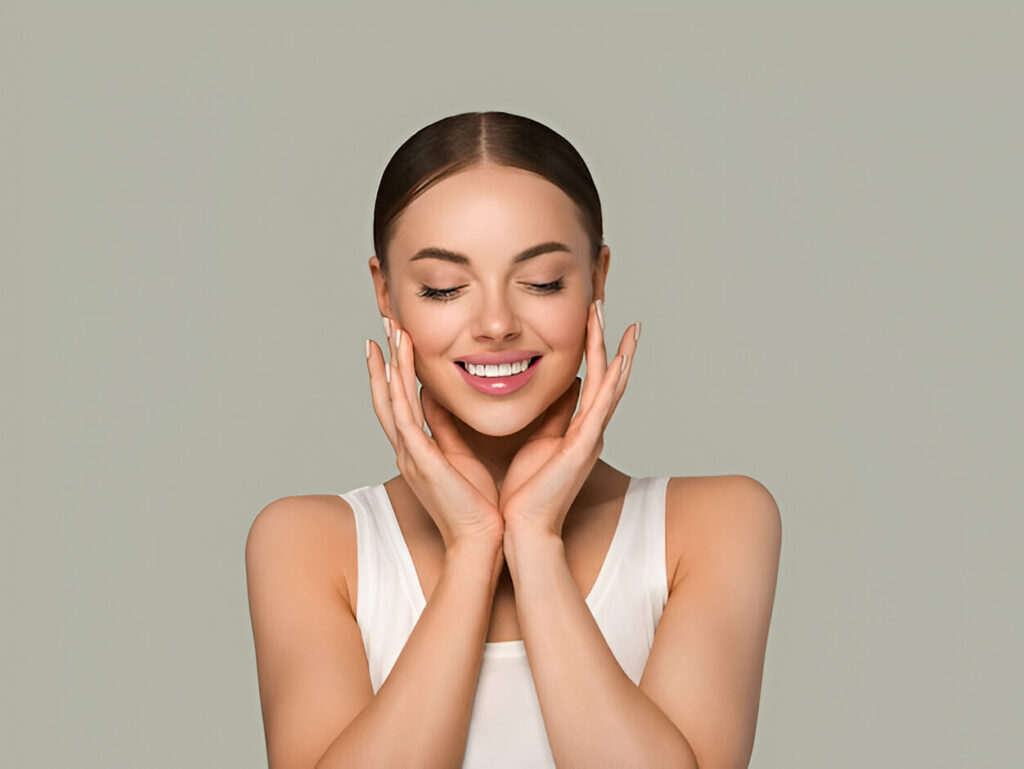
Skin Treatments for Glowing Skin: Achieving glowing skin is a common skincare goal, but factors like pollution, stress, poor diet, and aging can make skin look dull and tired. The good news is that various skin treatments can help restore your skin’s natural radiance. Whether you prefer professional dermatological treatments or natural home remedies, this guide will explore the best skin treatments for a long-lasting glow.
Professional Skin Treatments for Glowing Skin
For those seeking long-term results, professional dermatological treatments offer scientifically proven methods to enhance skin brightness and improve overall texture.
1. Medicated Anti-Dandruff Shampoos
Chemical peels use acids like glycolic, lactic, or salicylic acid to exfoliate dead skin cells and promote skin renewal. They help in reducing pigmentation, fine lines, and dullness, revealing a brighter complexion.
2. Microdermabrasion
This treatment involves a minimally invasive exfoliation process that removes dead skin layers, leaving the skin smooth and radiant. It is suitable for treating dull skin, mild acne scars, and sun damage.
3. Laser Skin Resurfacing
Laser treatments such as Fractional CO2 and Intense Pulsed Light (IPL) therapy target deep skin layers to stimulate collagen production, reduce dark spots, and enhance skin tone.
4. Hydrafacial
HydraFacial combines cleansing, exfoliation, extraction, hydration and antioxidant protection. This quick, non-invasive treatment is highly effective in achieving an immediate brightness and deep hydration.
5. LED Light Therapy
This treatment uses various wavelengths of light to treat skin concerns. Red light therapy promotes collagen and reduces inflammation, while blue light therapy helps with acne and oil control.
6. Mesotherapy & PRP Therapy
Mesotherapy involves injecting vitamins and serums in the skin for hydration and brightness. PRP (platelet-rich plasma) therapy, also known as “Vampire Facial”, stimulates skin renewal by using growth factors from the patient’s own blood.
7. Oxygen Facials
Oxygen facials infuses the skin with pure oxygen and hydrating serum, improve circulation and give the skin an immediate, healthy glow.
Natural & Home-Based Skin Treatments
Many DIY remedies for those who like natural remedies can improve skin glow without professional intervention.
1. DIY Face Masks for Radiance
- Honey and turmeric mask: Natural antibacterial and bright properties.
- Aloe vera and yogurt masks: hydrate and calms the skin.
2. Facial Massages & Gua Sha Therapy
Massaging the skin with natural oils or using devices like Gua Sha promotes blood circulation and gives a natural glow.
3. Essential Oils & Natural Serums
- Rosehip oil: Rich in vitamin C helps reduce dark spots.
- Jojoba oil:Oil balances production and provides hygiene.
Skincare Routine for Long-Term Glow
Maintaining a proper skincare routine is essential for glowing skin.
1. Cleansing & Exfoliation
- Use a soft cleanser to remove dirt and oil.
- Exfoliate 2-3 times a week to remove dead skin cells.
2. Hydration & Moisturization
Hydrating materials such as hyaluronic acid and ceramides help to keep the skin thicker and bright.
3. Sun Protection
Applying sunscreen (SPF 30 or higher) daily prevents skin damage and premature aging.
4. Nutrition & Lifestyle
- Eat antioxidant-rich foods like berries, nuts, and leafy greens.
- Drink plenty of water for skin hydration.
- Get enough sleep and manage stress for healthy skin.
Choosing the Right Treatment for Your Skin Type
Dry skin: hydrating treatment such as HydraFacial and mesotherapy.
Oily skin: chemical peels and laser resurrection help to control oil and acne.
Combination Skin: A mixture of exfoliation, hydration and safety is ideal.
Sensitive skin: gentle treatment such as LED therapy and oxygen facials..
Conclusion
To achieve glowing skin requires a combination of professional treatment, natural remedies and a consistent skincare routine. Whether you choose dermatological treatment or home-based treatment, taking care of your skin in the right ways will help maintain a young and bright color.

